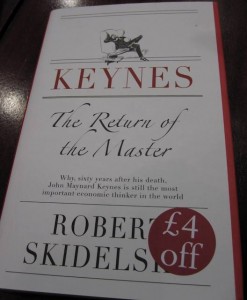Energy consumption from data centers doubled between 2000 and 2005–from 0.5 percent to 1 percent of world total electricity consumption. That figure, which currently stands at around 1.5 percent, is expected to rise further. According to a study published in 2008 by the Uptime Institute, a datacenter consultancy based in Santa Fe, NM, it could quadruple by 2020.
“Having energy consumption go from one to three percent in five to ten years, if that goes on, we are in big trouble,” says Kenneth Brill, Uptime Institute executive director. Unless this growth is checked, greenhouse gas emissions will rise, and “the profitability of corporations will deteriorate dramatically,” he adds.
Hmmm… Not sure about the profitability angle, but the environmental issue is a real one. According to this report, Yahoo is now taking it seriously.

At any rate, its new datacentre near Buffalo, NY, includes buildings oriented to take advantage of the breeze coming off Lake Erie, with cupolas to vent hot air from racks of servers. Operators only have to switch on air-conditioning when outside temperature rises above 27 degrees.





